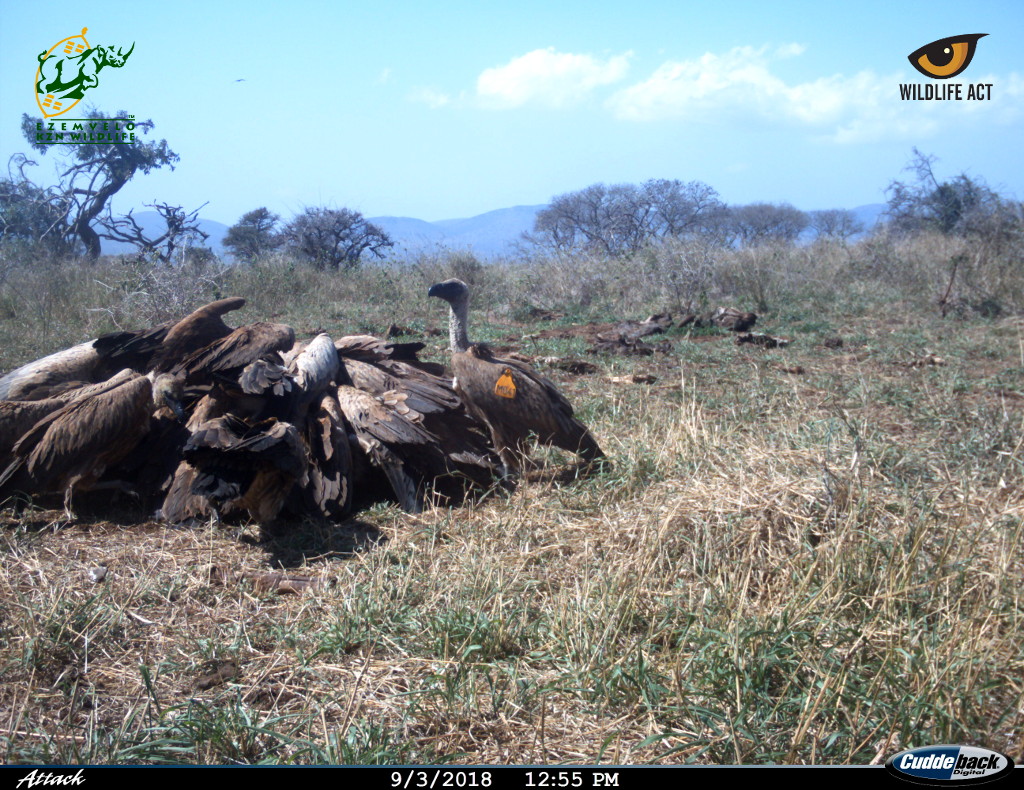
Most Vulture species are under threat due to increased habitat loss, collision into power-lines, as well as poisoning and the illegal trade in body parts. Protected areas such as Manyoni Private Game Reserve play a crucial part in the conservation of Vultures by creating Vulture restaurants.
Vulture restaurants are undisturbed sites where poison-free carrion is deposited for Vultures to feed on. Not only does this supplementary feeding support endangered Vultures and young fledglings in times of food scarcity, but also provides a safe source of food for Vultures roosting in the area.

The Vultures in turn provide landowners with a clean and cost-effective way of disposing of waste and unwanted carcasses, recycling flesh and bone into living tissue, and controlling disease outbreaks. Vultures ultimately can be used to measure the functioning of the ecosystem.
The Manyoni Wildlife ACT Team help with setting up and maintaining camera traps at these Vulture restaurants to help indirectly monitor endangered Vulture species. Once the camera trap images are downloaded, the Team sorts through these in search of patagial (wing) tags. These tags play an important role in monitoring the success of Vultures - especially captive-bred or rehabilitated birds, by giving conservationists and researchers important information into the local movements and dispersal patterns, migratory patterns and seasonality, survival rate and longevity, as well as information on the causes of mortality and potential threats. This ultimately improves Vulture conservation decisions and actions.

The tag number and colour, as well as the species, date, time, name of locality, coordinates, the bird's condition and behaviour, and any additional notes and photographs of tagged individuals sighted at Vulture restaurants, are recorded as far as possible and sent to the relevant parties. You too can play a part in conserving endangered Vultures by recording the necessary information and sending it to andreb@ewt.org.za
Alternatively, Vulture sightings can also be reported to Project Vulture at the following link: http://projectvulture.org.za/report-vulture-sighting/
Text by Wildlife ACT Monitor Dani Theron